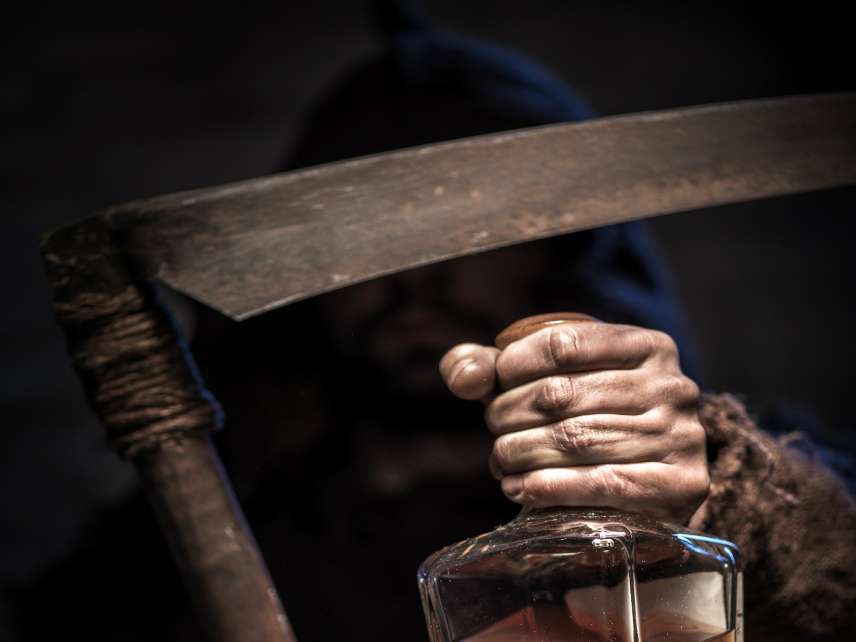Will Cutting Taxes on Booze Actually Kill People?
Don't believe the alarmists.

Even in these divisive times, one would have thought that most Americans would raise a glass to news that the tax reform passed by the Senate last week included some sizable tax cuts for craft beer, wine, and spirits producers.
But Vox, which trusts its employees with only two drinks per Christmas party, calls the cuts "a public health disaster." ThinkProgress warns of a "dramatic increase" in alcohol-related deaths. Both outlets rely on calculations from the Brookings Institution's Adam Loomey, who estimates the cuts will cost roughly 1,550 lives, including between 280 and 670 motor-vehicle deaths. "A reduction in excise taxes on alcohol," he says, "will impose a higher cost than we should be willing to pay—the loss of human life."
Despite these morbid warnings, there are good reasons to doubt that we're sacrificing scores of lives for the sake of a cheaper buzz.
Loomey pieces together his figures from papers that themselves piece together their findings from yet more studies looking at the effects of alcohol tax increases in countries ranging from the U.S. to Spain to Finland. These papers come to dramatically different conclusions about the effect of taxes on alcohol-related mortality. One found a doubling of taxes led to a 35 percent reduction in deaths. Another found a less than 5 percent reduction.
One need not be a hardcore skeptic to believe that these aggregates of aggregates tell us little about the effects of the specific excise tax cuts before us.
Parsing out what these tax cuts will look like to the end consumer makes the handwringing look even more ridiculous.
Under the Senate's plan, beer producers would see the rate they pay for the first 60,000 barrels fall from $7 to $3.50 per barrel. (Producers of more than 60,000 barrels would see their per barrel excise tax fall from $18 to $16). Craft distilleries would see a much larger cut, with their rates going from $13.34 per proof gallon to $2.70 for the first 100,000 proof gallons.
Those cuts might sound dramatic, but they don't stack up to much at the retail level. The excise tax on beer would fall from 2 cents per beer to 1 cent. It's the same for the harder stuff, cutting less than $2 off the cost of a craft-distilled fifth of liquor.
It strains credulity to assume that saving a few pennies on a $10 six-pack will lead to otherwise sober motorists getting too drunk to survive their drive home from the bar. Likewise for knocking a few bucks off a $35 bottle of whiskey. And that's assuming the entire tax cut would be passed onto the customer. Brewers and distillers may prefer to spend it hiring more employees, raising wages for their current employees, or buying new equipment.
Julie Verratti, of the Maryland-based Denizens Brewing Company, told me last month that the Senate's excise tax cut on beer would save her business $6,000, saying "that's buying kegs, that's buying tanks, that's paying our employees higher wages."
Despite the overwrought claims of the nanny-staters, allowing small businesses like Verratti's keep more of the money they earn does not have to come at the expense of thousands of lives.
Rent Free is a weekly newsletter from Christian Britschgi on urbanism and the fight for less regulation, more housing, more property rights, and more freedom in America's cities.


Show Comments (31)